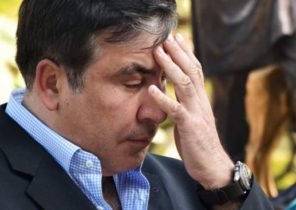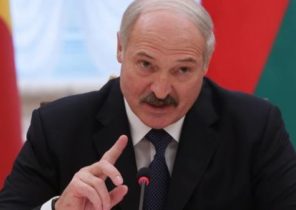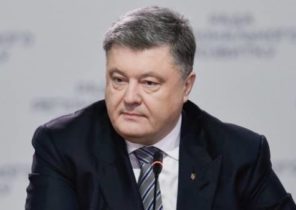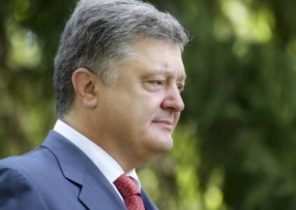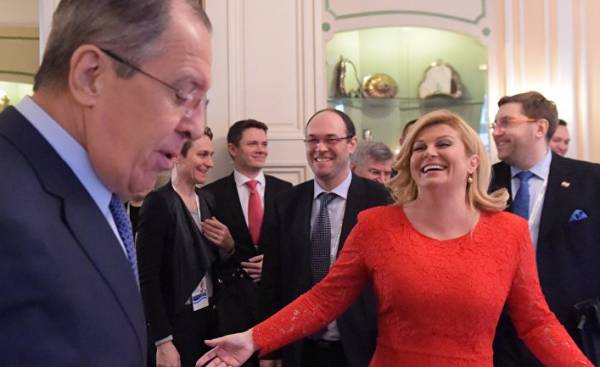
At the opening of the Munich security conference on 17 February, its Chairman Wolfgang Ischinger (Wolfgang Ischinger) noted “a major uncertainty” in international relations since the election of Donald trump in November 2016. “Unprecedented” situation for 53 years of the existence of this annual forum, which has become a kind of Davos in the defense sector.
“I hope that on Sunday following the discussion, we will be able to find answers to the questions raised,” — said the German diplomat.
The least we can say, hope Ischinger did not materialize. Prominent representatives of the new American administration were many: Vice President Michael Penny (Michael Pence), Secretary of defense James Mattis (James Mattis), the Minister of internal security John Kelly (John Kelly) and many members of Congress. Whatever it was, proclaimed loyalty to the transatlantic relations could not conceal reigning in Washington, the confusion and complete lack of a clear foreign policy line.
Confusion
As official speeches and conversations behind closed doors on this highly anticipated conference response arriving at the hotel Bayerischer Hof participants flowed from confusion to disappointment.
On Sunday afternoon it all became clear: a month after the appearance of Donald trump at the White house in the relations between Europe and the United States have an obvious and deep crisis of confidence, and nothing yet indicates how to overcome it.
In form, the Americans have done everything necessary to reassure European allies and to erase the memory of trump’s remark about the “stale” nature of NATO. So, Pence said Saturday about the “unwavering support” of the Alliance with the United States.
Have unpleasant feeling, rather, what was said. For example, the complete lack of mention of the European Union in the speech of the Vice-President did not go unnoticed by Europeans, who were shocked by the repeated attacks of the trump in the EU over the past time and hoped for a clarification on this issue.
“Penny talked to us like children, “I love you, I love you.” Only here it was all completely meaningless,” protested the former Secretary General of NATO, Javier Solana (Javier Solana). Privately, one European Minister said “art style”, but stressed that on specific topics in their conversations, any progress he had not noticed. “What is the U.S. position? There’s nothing I can tell you that because I don’t know,” said Sunday the UN special envoy for Syria Staffan de Mistura (Staffan de Mistura).
Unfortunate picture of the White house
In the tradition of the conference, participants usually respond to questions from the audience after the speeches, however, the representatives of the American authorities preferred to avoid dialogue. If German Chancellor Angela Merkel and Minister of foreign Affairs of Russia Sergey Lavrov followed the rules of the game, the Americans decided to avoid the awkward situation of those who do not know what to say.
Apparently, not without reason. All coming from Washington information and data present and American experts who visited the American capital of Europeans paint a depressing picture of the state of new command of the White house. “Upstairs there is a civil war,” — says one of them, speaking about the confrontation between radical strategic Advisor Steve Bannon (Steve Bannon) and more “rational” members of the administration. Who will win, system, or Donald trump?
Another source believes that U.S. officials went to Munich for the sake of public diplomacy, to supply the President with a fait accompli. The third talks about the real desert in the American military-diplomatic apparatus in the new administration busy only “39 out of 4,800 positions.”
General David Petraeus (David Petraeus) explained the reasons for the refusal to take the post of national security adviser after the departure of Michael Flynn (as Michael Flynn): it is not guaranteed the opportunity to choose their advisers and political course. The Minister, who spoke with us Secretary of state Rex Tillerson (Rex Tillerson) in Bonn, the impression that the materials that was prepared by former staff of ExxonMobil, and not the (still missing) staff of the state Department.
In the background, “seen from Munich chaos in Washington,” as an employee of the expert group of the German Council on Foreign Relations Daniela Schwarzer (Daniela Schwarzer), who was present in the Bavarian capital, the leaders of France and Germany made a General message, stressing as never before the urgent need to build a decent European defense.
In this regard, particular attention has attracted the persistent position of the German leadership about the more active participation of Berlin in these matters. “We Germans want to solve this problem at the same time as the Europeans and US allies, but first and foremost as a country that 25 years after the fall of the Berlin wall became an adult democracy, willing to take responsibility,” said defense Minister Ursula von der Leyen (Ursula von der Leyen). “We want to prove yourself, to prove themselves as Europeans!” she continued, looking at the us counterpart.
This message was addressed not only Americans but also the French, who already not the first year achieve a more efficient allocation of responsibilities in the area of European security. They appreciated this, although so far not very hopeful. “The Germans felt the desire to contribute more to European defense, and it’s definitely a positive thing. At the same time, we know that this is a very sensitive issue on which there is much debate in Germany,” — said in Munich was a French diplomat.
Uncertainty
These disputes flare up again in Germany with the approach of parliamentary elections on 24 September, and made themselves felt in several different statements, Ursula von der Leyen and foreign Minister Sigmar Gabriel (Sigmar Gabriel).
First, a member of the CDU, said that Germany is strongly focused on the fulfillment of NATO’s goals to allocate 2% of GDP on defense spending (against the current 1.2%). Second, the leader of the social Democrats, did not hesitate to Express their doubts about the feasibility of such obligations. “I don’t know, where do we get the money,” he said the next day.
“Once Americans are no longer going to actively support Europe, Germany and France realize that they need more to do themselves, — said Daniela Schwarzer. But their leaders were in the same situation: in both countries this year will be elections, and no serious decisions until it just can’t be accepted. Especially because nobody knows which teams will be in power in Paris and Berlin in the coming years.”
In other words, the uncertainty that was generated in Europe, the new us administration, further enhanced with elections approaching in two key EU member States.
